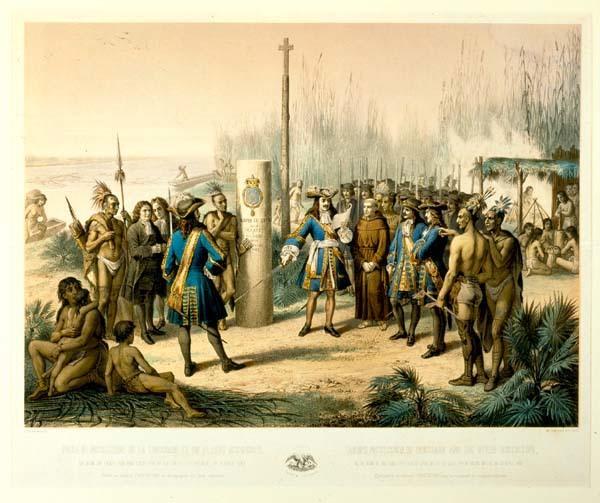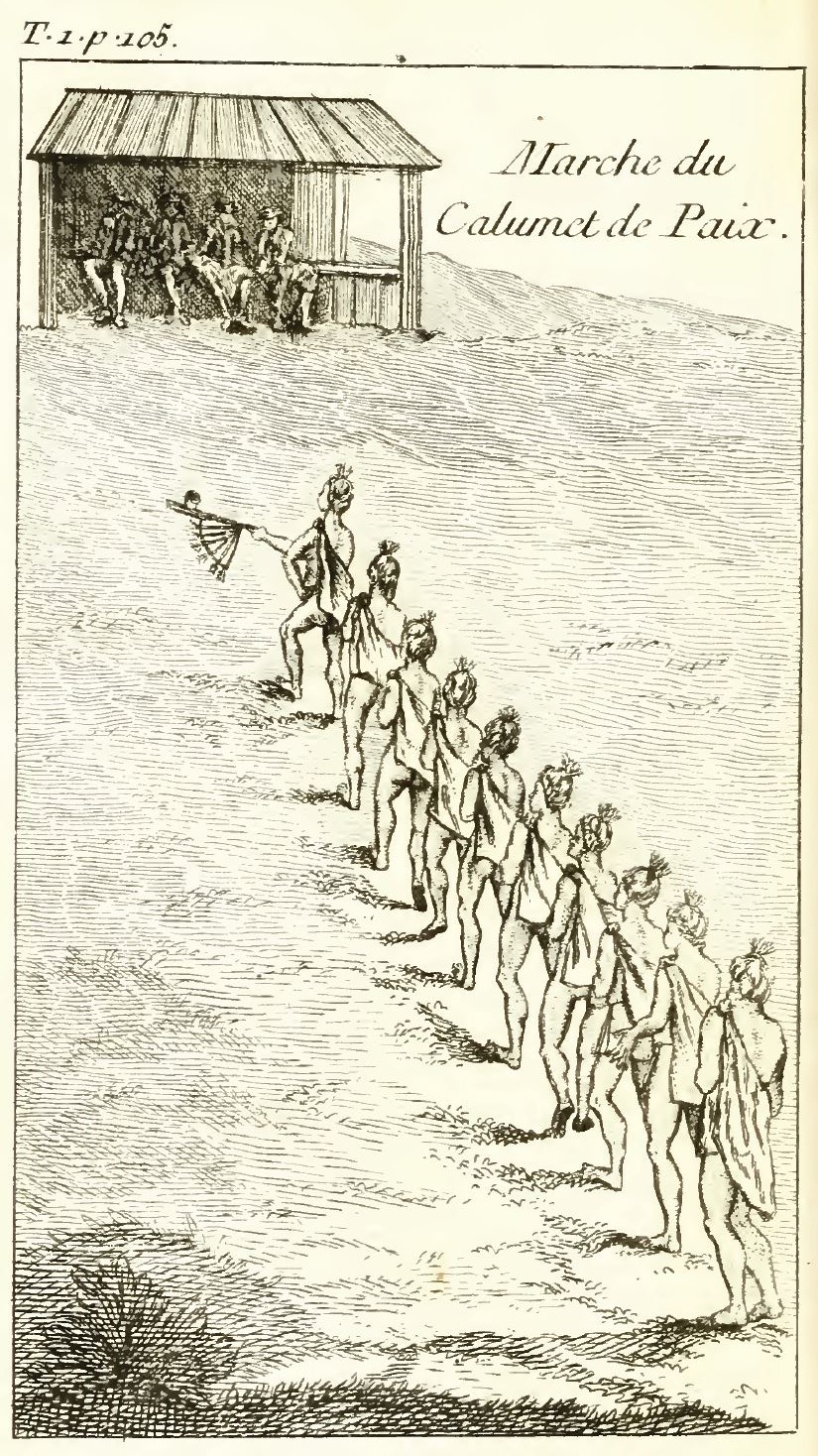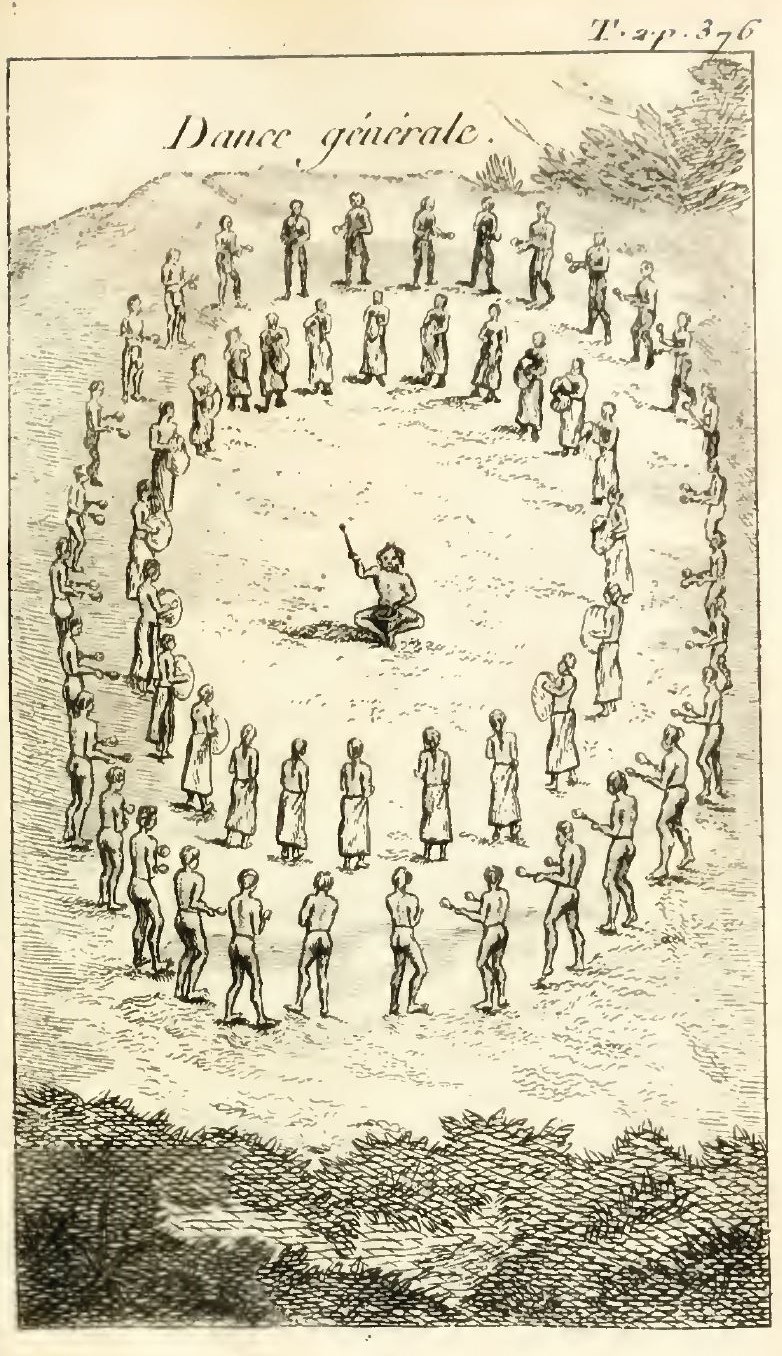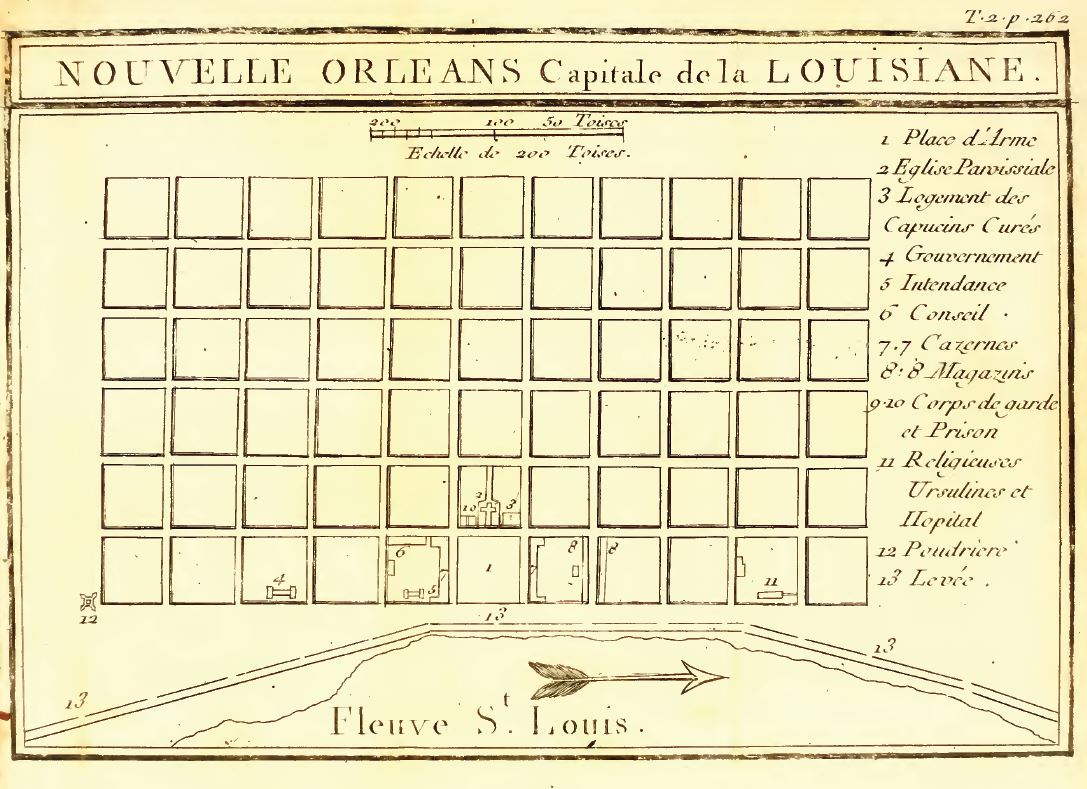 Home Page
Home Page
- Lecture.mp3
- Listen in iTunes
- Listen on Stitcher
Bring Me the Heads
of My Enemies
of My Enemies
We start with two readings describing Bienville's founding of New Orleans and his conflict with local tribes.
- Berry. City of a Million Dreams. Chapter 1.
- Louisiana Anthology
Podcast interview with Jason
Berry. Pay special attention to the portion on
Bienville.
- Armstrong. Louisianais. Chapter 9. Fort Rosalie.
Berry's history of New Orleans is almost poetic in its lyrical
description of people and events. In contrast, Armstrong writes
mostly iambic pentameter, alternating between blank verse and
heroic couplet, all of it dreck. I recommend you go ahead and
skim Armstrong; don't get bogged down! But dreck has its uses;
it can give us an unreflective look at the underlying ideology.

La Salle Claiming Louisiana.

Natchez Calumet Ceremony

Natchez Dance

Nouvelle Orléans original
plan
All
Europe contributed to the making of Kurtz; and by and by I
learned that, most appropriately, the International Society for
the Suppression of Savage Customs had intrusted him with the
making of a report, for its future guidance. And he had written
it, too. I've seen it. I've read it. It was eloquent, vibrating
with eloquence, but too high-strung, I think. Seventeen pages of
close writing he had found time for! But this must have been
before his—let us say—nerves, went wrong, and caused him to
preside at certain midnight dances ending with unspeakable
rites, which—as far as I reluctantly gathered from what I heard
at various times—were offered up to him—do you understand?—to
Mr. Kurtz himself. But it was a beautiful piece of writing. The
opening paragraph, however, in the light of later information,
strikes me now as ominous. He began with the argument that we
whites, from the point of development we had arrived at, 'must
necessarily appear to them [savages] in the nature of
supernatural beings—we approach them with the might of a deity,'
and so on, and so on. 'By the simple exercise of our will we can
exert a power for good practically unbounded,' etc., etc. From
that point he soared and took me with him. The peroration was
magnificent, though difficult to remember, you know. It gave me
the notion of an exotic Immensity ruled by an august
Benevolence. It made me tingle with enthusiasm. This was the
unbounded power of eloquence—of words—of burning noble words.
There were no practical hints to interrupt the magic current of
phrases, unless a kind of note at the foot of the last page,
scrawled evidently much later, in an unsteady hand, may be
regarded as the exposition of a method. It was very simple, and
at the end of that moving appeal to every altruistic sentiment
it blazed at you, luminous and terrifying, like a flash of
lightning in a serene sky: 'Exterminate all the brutes!' — Heart
of Darkness